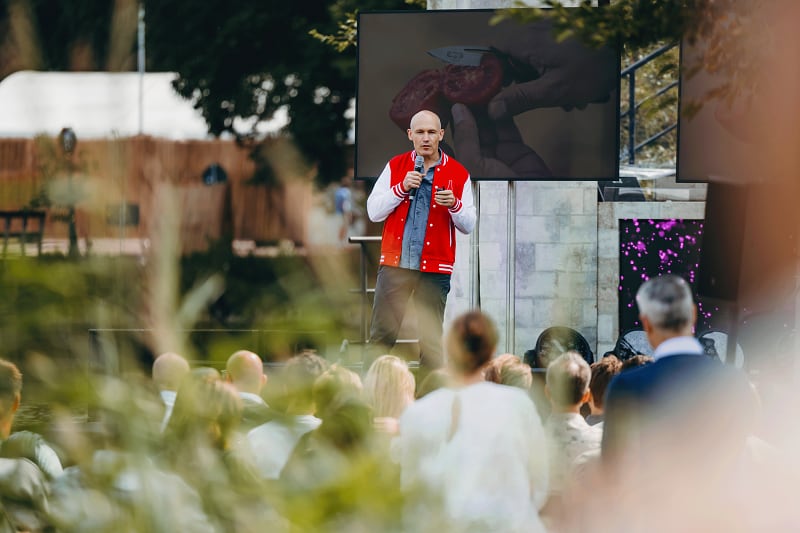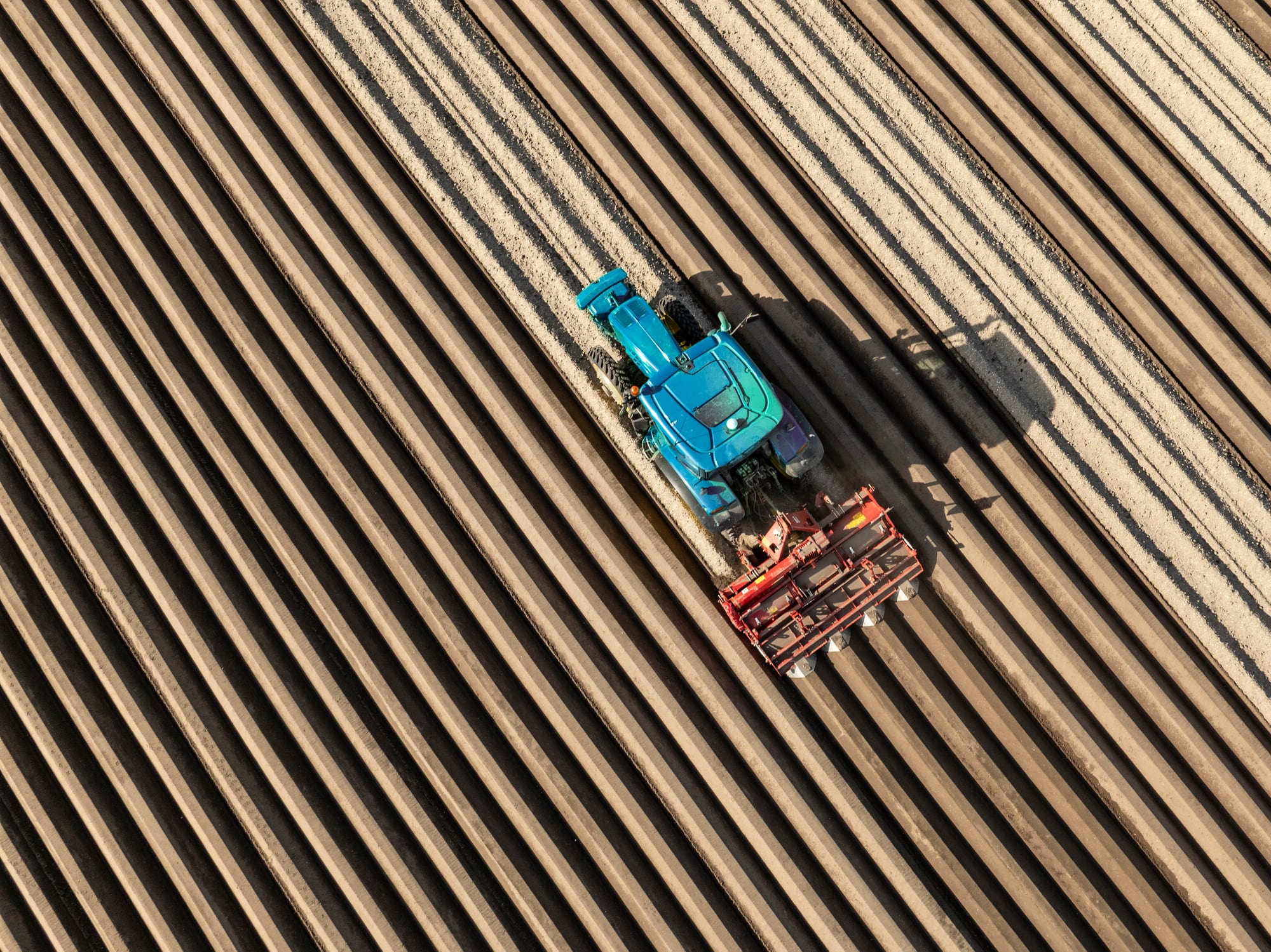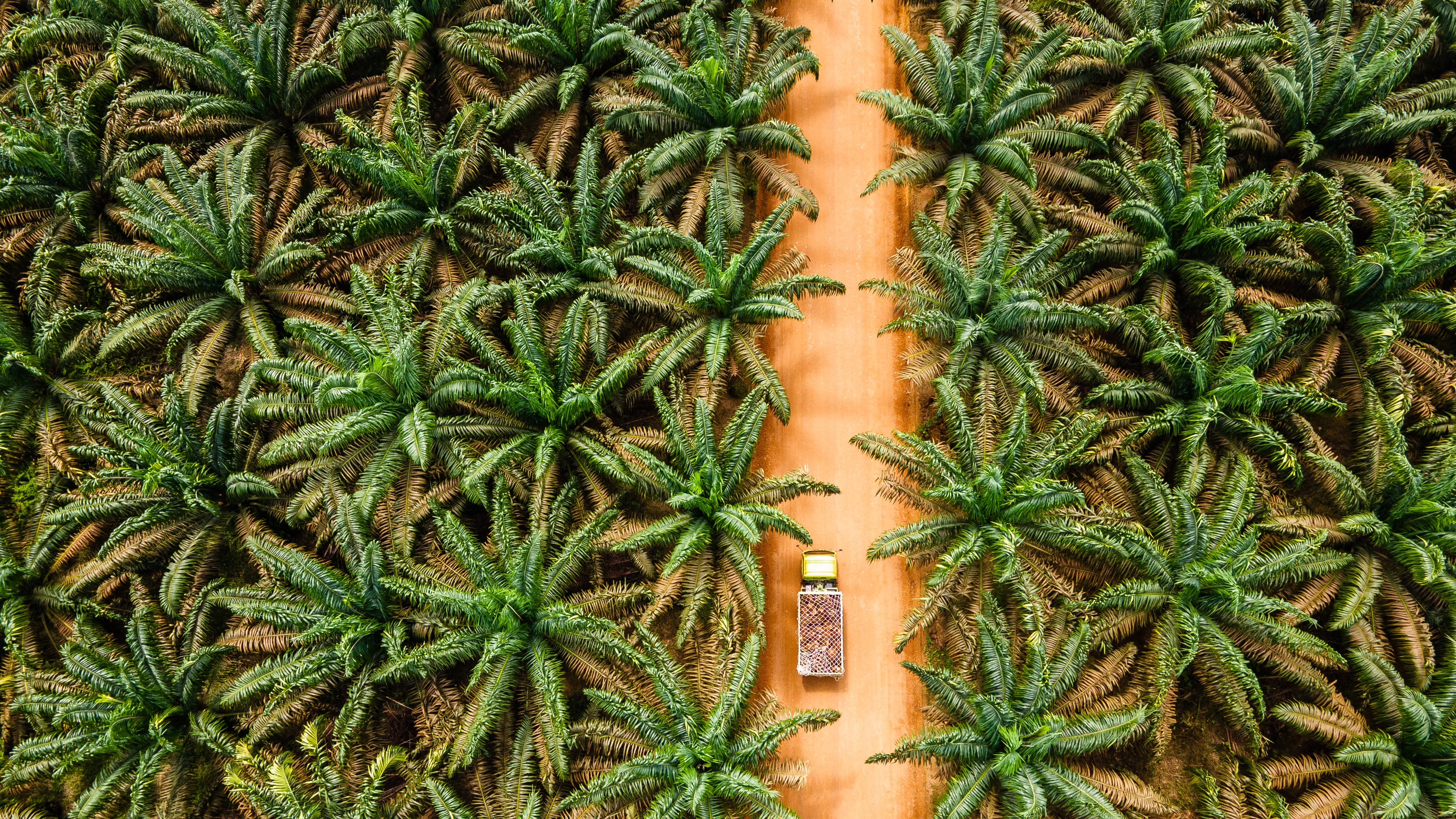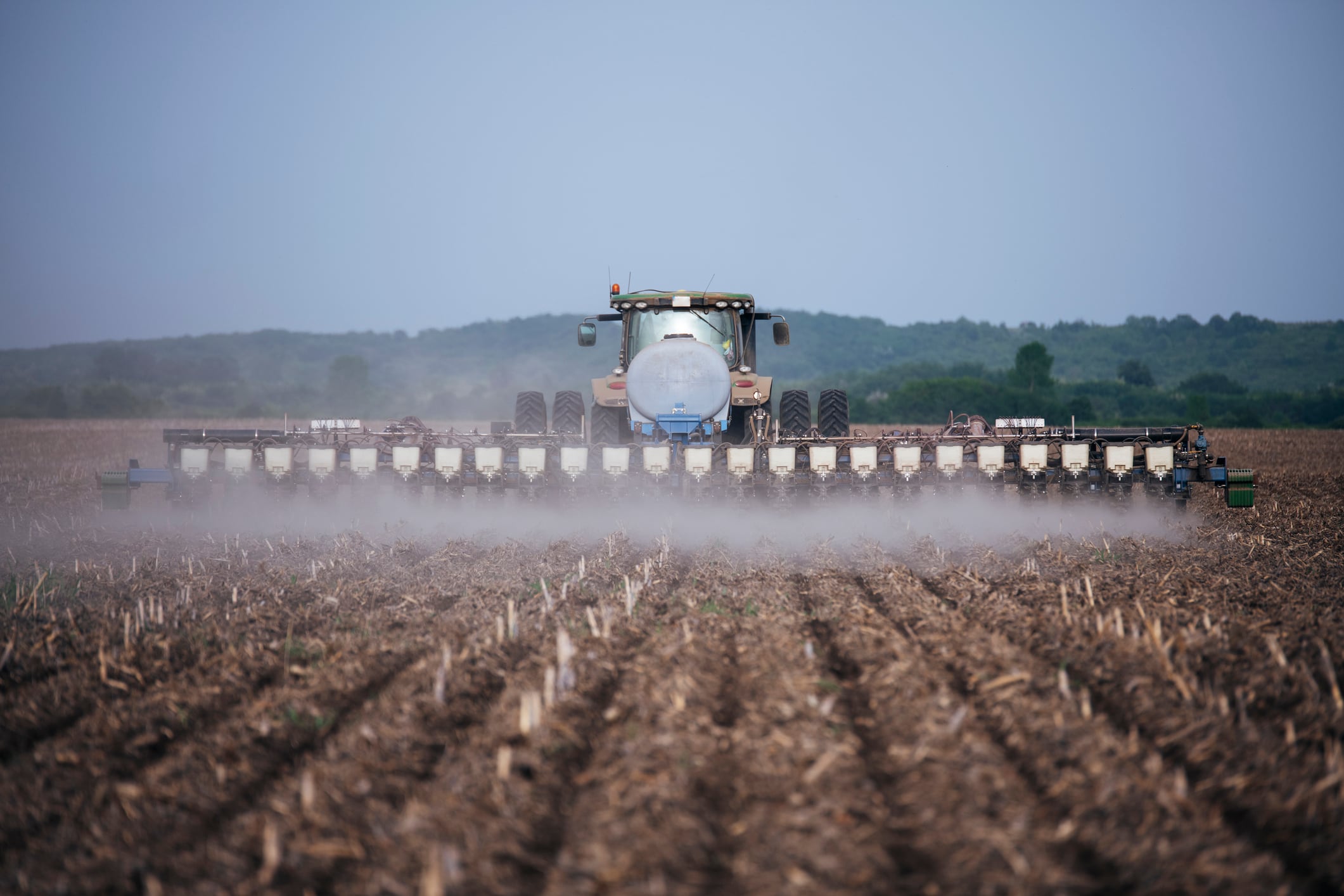ATN: How is Kraft Heinz collaborating with European farmers and partners to promote regenerative agriculture practices across key crops like tomatoes?
PS: Ultimately, we believe that working with nature – promoting soil health, improving biodiversity and conserving water, will protect our food for the future. This philosophy has laid the foundation for how we partner with growers around the world.
We also believe that promoting outcomes versus practices fosters innovation, increases adoption, and delivers better results. With this approach, we work with growers to identify practices and technologies that work on their farm in their context.
For example, we’ve been working with second-generation tomato grower Manuel Vászquez and his family at The Conesa Group in Spain for two decades – implementing regenerative and sustainable farming practices that are mutually beneficial; Kraft Heinz benefits from a resilient supply chain, better ingredients and superior products, whilst our growers produce better yields with less impact. It really is a win, win.
The goal is to be true partners, listening and learning from one another in pursuit of delicious tomatoes that consumers can feel good about eating.
ATN: What specific regenerative farming techniques does Kraft Heinz emphasize in its programme, such as soil health improvement, cover cropping, or water management?
PS: We work from the ground up – because great taste begins with great soil. In fact, Henry J. Heinz once said, “To improve the quality of a food product on the shelf, you must first improve the quality of the produce in the ground.” Which is why, just over a decade ago, we partnered with Conesa to help enhance their agricultural practices to grow the highest quality tomato crops.
In Spain, we’ve introduced cover cropping, which involves planting additional, non-harvesting crops that naturally enhance soil fertility and organic matter. This has helped double yields over the course of 20 years and increased organic matter from 0.94 to 1.8% - helping to reduce soil erosion and improve the GHG balance. Best of all, we’ve seen neighbouring farms adopt the process too, leaving a lasting impact on the larger farming community in Badajoz.
Through the introduction of drip irrigation systems and soil moisture probes we’ve been able to optimise the use of water, and we’re limiting waste because tomato stalks are now reused for feed, compost and fertiliser.
Additionally, we’re helping to minimize pesticide use with threshold-based interventions and degree-day models, which use temperature to predict pest development stages and optimize control strategies.
It’s through our close collaboration with farmers like Manuel, and our seed and agriculture R&D teams, that we can continue to provide high-quality tomato products for consumers around the world.
ATN: Can you explain the financial incentives, advisory services, or technical support Kraft Heinz provides to farmers to help them transition to regenerative practices?
PS: Kraft Heinz is the largest buyer of processing tomatoes globally, supporting growers around the world who are proud to grow Heinz tomatoes.
And with almost 100-years of agricultural heritage, we’re well placed to pass on our tomato expertise, which we’re making available to everyone via the Kraft Heinz Sustainable Agriculture Practices Manual – an educational resource that lays the foundation for ethical, responsible farming practices.

In addition, Heinz Tomato growers gain access to our global network of agronomists and receive technical support from our R&D experts at HeinzSeed, where we’ve been cultivating high-quality tomato seeds for Heinz Ketchup and other Heinz products since 1934.
This includes in-field agronomy support where growers can seek advise on almost anything from irrigation to nutrition. Growers also gain access to soil sampling and analysis, which empowers them to make informed decisions based on real-life data.
Growers also receive guidance on the seeds themselves; entirely unique to Heinz, our seeds produce the perfect ketchup tomato and can tolerate heat stress, water stress, and disease pressure better than other tomatoes. As a result, these tomatoes require less water and land, and use fewer pesticides and fertiliser – reducing grower’s input costs whilst improving yield and quality.
Globally, we have over 100 team members who are passionate about productive and sustainable agriculture. Many of them work with our partner growers and processors in the fields every day.
ATN: How does Kraft Heinz measure, verify, and report the environmental impact of its regenerative agriculture initiatives, particularly regarding carbon reduction and soil health?
PS: We grow crops on almost every continent which means we must take a localized approach to better address unique challenges and measure the impact – what works on one farm doesn’t necessarily work on another farm.
For example, the heavy soil we encounter in Spain is completely different from the blow sand in Egypt, so our agriculture practices and principles are different. If we were to prescribe the same practices/inputs for every farm, the farms wouldn’t reach their full potential.
With this in mind, we use soil sampling to assess the soil health of individual farms. Soil sampling helps us measure organic matter, pH, nutrients and salinity, and where relevant, we carry out checks to measure soil compaction and field infiltration – this is an important measure of how readily rainfall can become available for plants versus running off and causing erosion or flooding.
We also asses’ inputs like water and fertiliser use per tonne of tomatoes, we look at irrigation efficiency and we of course measure yield and quality.
As we look to the future, we’re exploring measurement at scale which includes, but isn’t limited to; how we can use AI to integrate soil tests, data and outcomes, whether biodiversity proxies can measure the diversity of species or ecosystems in our grower’s fields, and we’re looking at how tools like EC mapping could further optimise soil management.
We are actively evaluating providers and would be happy to hear from innovators who can help us measure regenerative agriculture outcomes at scale.
ATN: What are the ultimate benefits to your supply chain and business?
PS: The business case for regenerative agriculture is overwhelming – healthy soil gives tomatoes the nutrients they need to grow into the delicious tomatoes that Heinz ketchup fans, know and love. And healthy soil promotes the efficient use of natural resources (like water) and requires less fertiliser – in turn, supporting progress towards reducing our scope 3 emissions.
As well as supporting grower livelihoods, our approach to regenerative agriculture allows us to get ahead of issues like climate change – strengthening our supply chain and ensuring we can continue to provide consumers with the food they love for another 150 years.
Patrick Sheridan will be speaking about Kraft Heinz’s regenerative agriculture programme at the World Agri-Tech Innovation Summit London, taking place on September 22-23, 2025




